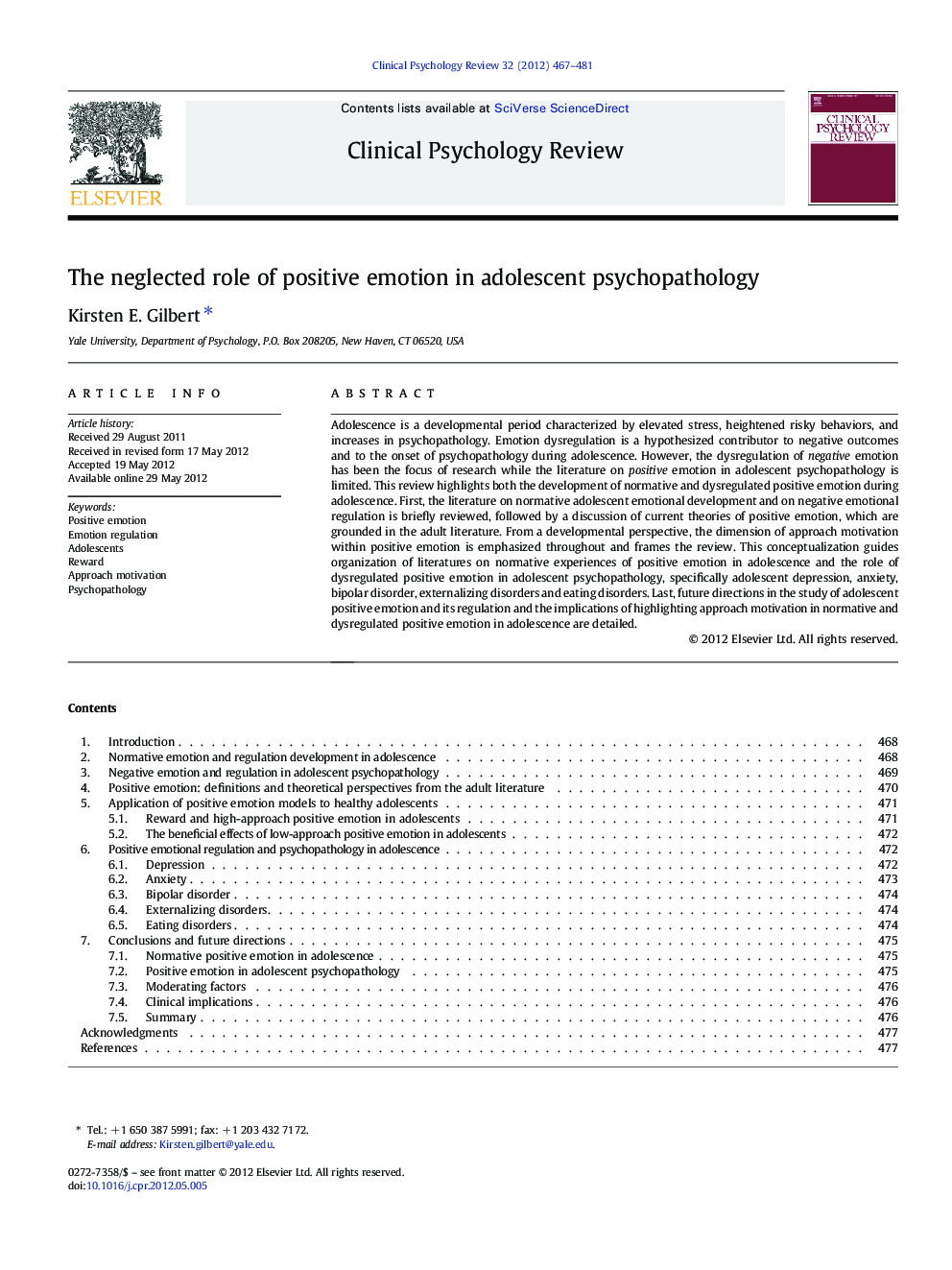| Article ID | Journal | Published Year | Pages | File Type |
|---|---|---|---|---|
| 903793 | Clinical Psychology Review | 2012 | 15 Pages |
Adolescence is a developmental period characterized by elevated stress, heightened risky behaviors, and increases in psychopathology. Emotion dysregulation is a hypothesized contributor to negative outcomes and to the onset of psychopathology during adolescence. However, the dysregulation of negative emotion has been the focus of research while the literature on positive emotion in adolescent psychopathology is limited. This review highlights both the development of normative and dysregulated positive emotion during adolescence. First, the literature on normative adolescent emotional development and on negative emotional regulation is briefly reviewed, followed by a discussion of current theories of positive emotion, which are grounded in the adult literature. From a developmental perspective, the dimension of approach motivation within positive emotion is emphasized throughout and frames the review. This conceptualization guides organization of literatures on normative experiences of positive emotion in adolescence and the role of dysregulated positive emotion in adolescent psychopathology, specifically adolescent depression, anxiety, bipolar disorder, externalizing disorders and eating disorders. Last, future directions in the study of adolescent positive emotion and its regulation and the implications of highlighting approach motivation in normative and dysregulated positive emotion in adolescence are detailed.
► A growing literature examines positive emotion (dys)regulation in adolescence. ► Positive emotion is linked with adaptive outcomes and reward-seeking in adolescents. ► Positive emotion is dysregulated across many forms of adolescent psychopathology. ► Approach motivation is emphasized in normative and dysregulated positive emotion. ► Further research in positive emotion regulation is warranted.
